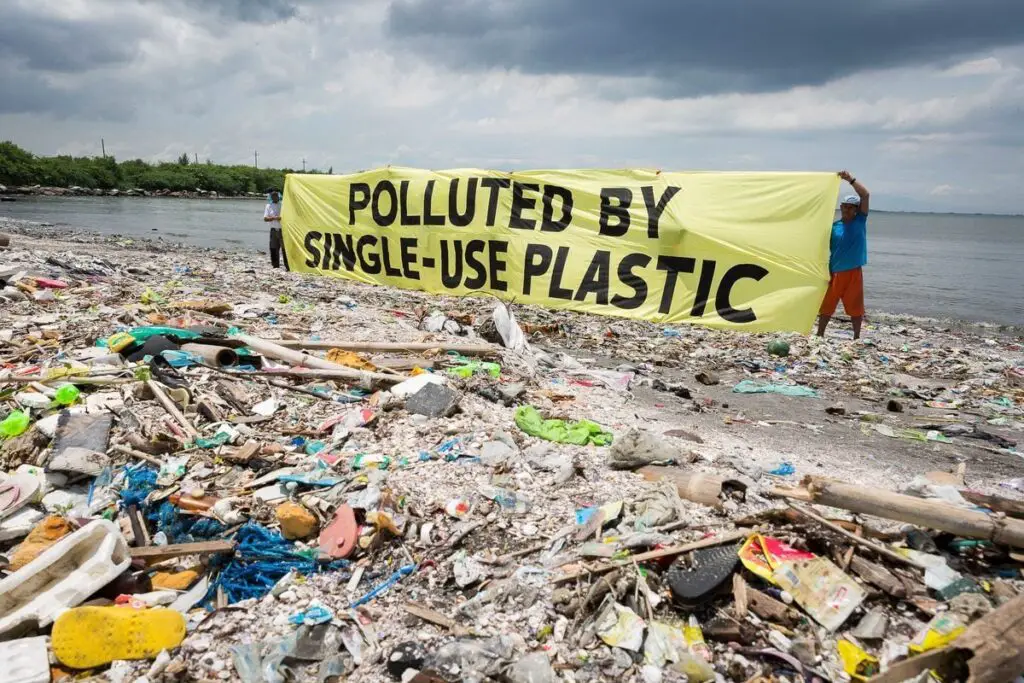- Global South is rapidly becoming a center of technological innovation and environmentally conscious policymaking.
- The area is ideally set to lead in sustainable plastic manufacture as the world reimagines plastic management.
- Producing plastics in novel ways is essential to the circular economy’s goal of minimising, reusing, and recycling materials.
The environmental effects of plastic have dominated the conversation over this material in recent years. Latest technological developments and growing international agreements suggest that the center of plastic production may soon move to the Global South.
Global initiatives to reduce plastic pollution, a booming circular economy, and expanding industrial capacities in the Global South are all driving this shift. The Global South is ideally situated to lead the way in sustainable plastic manufacture as the world community comes together to reimagine plastic management.
When it comes to international initiatives to reduce plastic waste, the United Nations has been a leader. This has been through several global initiatives that set guidelines to reduce plastic waste in the environment. Additionally, talks continue to produce frameworks for a worldwide pact to control plastic waste. What’s more, UN is offering a deal to advance circular economy practices, particularly in poorer nations. This international discourse has set the stage for a seismic change in plastic manufacture, perhaps favouring the Global South. Surveys show that this zone is set to win big due to its expanding manufacturing sector and the potential to leapfrog to sustainable practices.
Africa’s role in the plastics treaty: A journey toward environmental resilience
The United Nations Environment Programme (UNEP) highlights the importance of moving towards a circular economy in tackling plastics. According to UNEP, producing plastics in novel ways is essential to the circular economy’s goal of minimizing, reusing, and recycling materials.
The Global South is rapidly becoming a center of technological innovation and environmentally conscious policymaking. It is for these reasons that the circular economy principles in plastic manufacturing will find a welcoming host in Global South. Increasingly, the area is showing openness to innovative technology and environmentally responsible practices.
Despite Africa’s negligible role in global plastic production, it is being hit hard by the scourge of plastic pollution. It is in view of this that Nairobi’s impending Global Plastics Treaty talks from November 13-19th, 2023 will highlight a critical juncture for Africa to push for strict global plastic management standards.
The goal of the Global Plastics Treaty is to significantly reduce plastic manufacturing by 2040. This target is in line with Africa’s efforts to reduce the negative effects of plastic pollution on the environment and human health. The accord is an investment in a future where Africa’s unique biodiversity may flourish without the threat of plastics. Overall, it will boost the continent’s economy and protect its people’s health.
Africa, which suffers the most from plastic pollution yet contributing the least to the problem, strongly supports the creation of a global plastics treaty. The forthcoming discussions in Nairobi offer a glimmer of hope on adopting initiatives to reduce the plastic scourge. This move will benefit not just Africa, but humanity around the world.
Read also: East Africa mulls shifting from linear to circular economy
UN Plastics Treaty
To reduce the environmental, health, and economic toll of plastic pollution, African countries share the treaty’s goal of eliminating plastic manufacturing by 75 per cent by 2040. As Africa enters these debates, it must position itself as a major actor in guiding the global narrative on environmental sustainability. This will be achieved by lobbying for strict global plastic management legislation.
And the recent Paris talks under the UN’s plastic pollution treaty effort have been a major step towards establishing universal regulations to address this problem. The international community’s will to combat plastic pollution is reflected in the agreement to draw a convention.
Such global accords are usually accompanied by financial and technological support. They help with the transition to more sustainable practices, which is of great benefit to the Global South. This support can speed up the creation of a sustainable plastic manufacturing industry in the area. Such as move will place Global South as a new leader in this innovative domain.
The global mandate for crafting the first-of-its-kind convention by 2023 is emphasized in a Reuters story on UN plastic treaty talks. This shift reflects the need and widespread agreement to combat plastic pollution. Additionally, this is a great chance for countries in the Global South to attract investments and technological collaborations. Once successful, they will bring their plastic manufacturing sector in line with global sustainability standards.
Read also: Africa gears up for switch to circular economy
Role of Global South in guiding plastic manufacturing
The Global South has a leg up on the established firms in the Global North. This is because it has adopted sustainable practices from the get-go. In comparison, the Global North is still struggling to make the move away from traditional methods.
However, the road ahead has obstacles for the Global South to replace Asia as the world’s plastics manufacturing powerhouse. A supportive environment for this transformation can, however, turn the tables in favour of Global South. This will be through the convergence of international backing, new technology, and a rising profile on sustainability.
Overall, there is an exciting future for the plastics industry around the world. Increasingly, the worldwide community is making commitment to reduce plastic waste. What’s more, the Global South is experiencing a growing manufacturing sector and exhibiting openness to sustainable practices. Certainly, the Global South can guide plastic manufacturing across the world into a new, sustainable era. And this will be via concerted effort and a unified vision.
